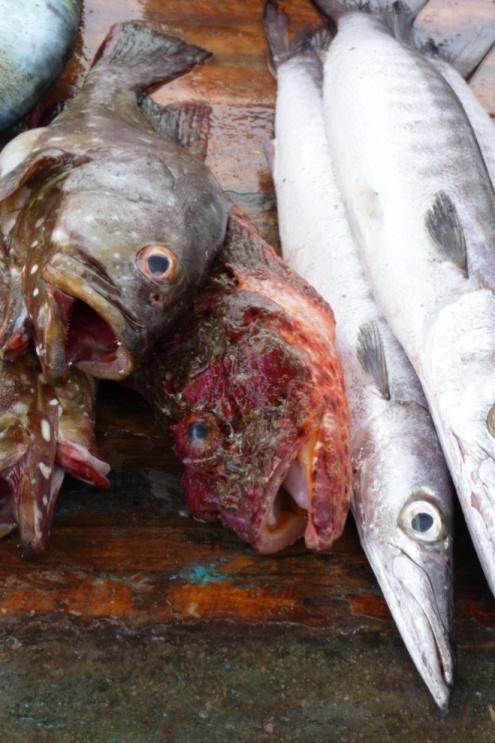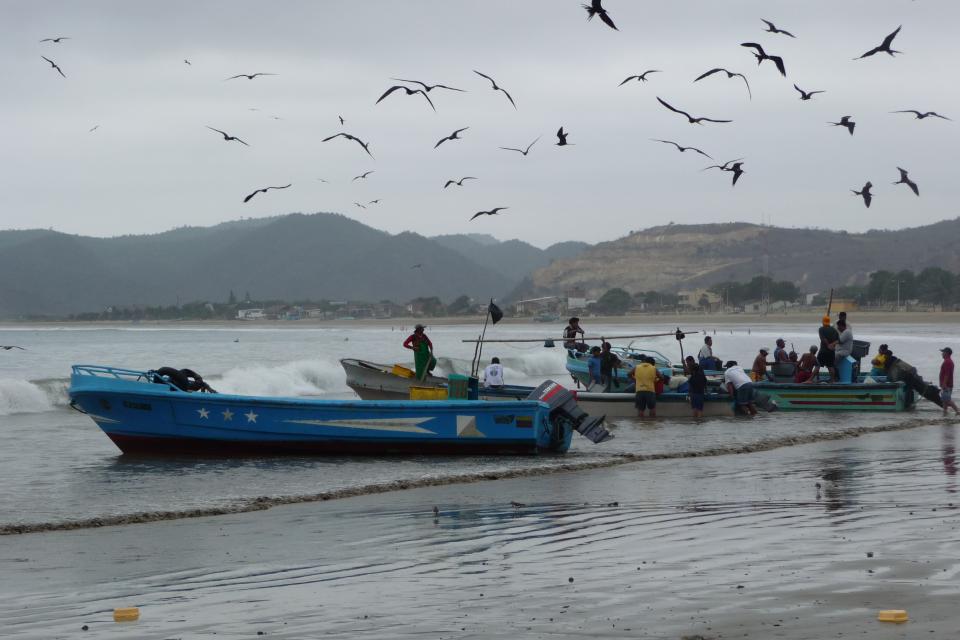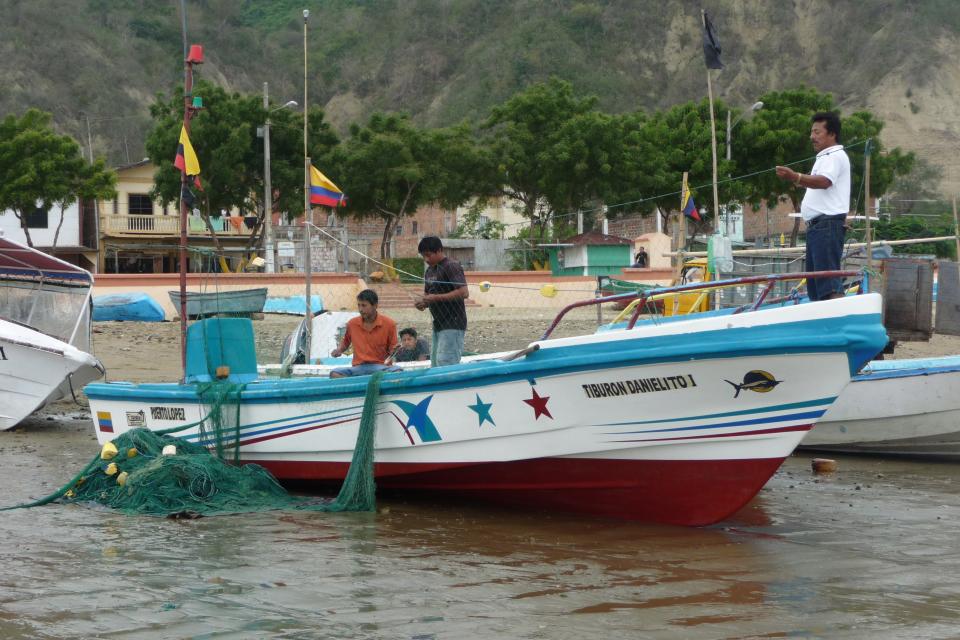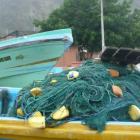Fishing is not cool! in the eyes of the young generations in Puerto López. Since the late 1990s this small fishing village on the Ecuadorian coast has systematically lost its long-standing fishing industry, which can be traced back to as early as 6,000 BC. In fact, there is abundant evidence that people in this area have long depended on fish and seafood (e.g., mahi-mahi, shells, and octopus) as a source of food, in particular protein. After 1950, small-scale commercial fishing in Puerto López started to greatly contribute to the local economy as a source of income. In the years that followed, this activity maintained its economic relevance, together with its social role as a bonding element for the entire community. For instance, multiple social groups were integrated in fishing-related activities, such as young people and elders taking part in disembarking and handling, women participating in evisceration and cleaning, and women, elders, and children joining in the post-harvest activities (e.g., trade and fixing gear). This integration critically determined local identity building and helped maintain cohesive elements within the local society. Over the past two decades, whale-watching tourism has arrived in the area and there has been a shift away from fishing in Puerto López. Issues of food sovereignty—regarding fish as food—have become important, due to the lower availability of fish for local consumption as a result of the reduction in small-scale fishing, including a smaller fleet and smaller crews. This article centers around the notion of fish as food in Puerto López, and around the shift away from fishing and towards activities connected with whale-watching tourism.
The 1997 El Niño event hit both the emerging tourist industry and the traditional fishing sector, which suffered major impacts as increased water temperatures resulted in a lack of fish. A year later, biological research found that humpback whales (Megaptera novaeangliae), a migratory species, were using the surrounding marine area to mate, breed, and nurse on an annual basis. A group of local tourism-related bodies then launched the “whale festival.” This initiative was intended to attract tourists’ attention to the area and to improve the struggling local economy. However, the direct consequence of this boom was not only the increasing number of tourists coming every year to watch the breeding whales; the blossoming profitable activity also attracted many people working in the already-depressed fishery sector, and especially awakened fishers’ interest in a new and promising source of economic income. In the following years, whale-watching-related businesses and infrastructure expanded rapidly and a large number of fishers shifted to working in this new form of marine nature-based tourism. At the same time, the whale-watching activity was strongly supported by the conservation discourses and propaganda of local and international NGOs, who, concerned about instances of sea turtle and marine mammal bycatch, perceived fishing as an environmentally unfriendly activity. The result of this trend was the strengthening of the regulations regarding marine protected areas while failing to take into account the social and cultural role of fisheries in the local community.
This was part of a widespread dissociation between the natural and social systems. To remedy this, in 2008, the new Ecuadorian Constitution was approved, incorporating the guiding principle of sumak kawsay. This Amerindian cosmovision of equilibrium centers around the harmonic coexistence of beings from the social and natural realms, and privileges the collective over the individual and solidarity over competition. In line with this, the constitution recognizes the rights of nature as a subject of juridical protection. However, it is still unclear how the long tradition of fishing in Puerto López—considered to be “small-scale” based on the type of boats (maximum length of 10 m) and fishing gear (e.g., gillnets, long-liners, hook-and-line) used—is covered by this new normative approach. In fact, after the abandonment of fishery activities, an important part of local identity has been lost, the role of fishing as providing a source of livelihood has been forgotten, and the critical role of fishing and fishers in the fish-as-food chain has been ignored.
The implications of this story are varied. The first falls under the dimension of food sovereignty by directly threatening people’s access to food and nutritious diets, their right to protect the local production and consumption of fish, and their influence in the fish market, with the consequent inability to keep fish as food local. Second, the reduced (or absent) food sovereignty of local communities illustrates the complexity, diversity, dynamics, and scale of fishery systems. This means that successful implementation of the constitutional principle of sumak kawsay urgently requires a more comprehensive understanding of both natural and social systems. The existing interactions between humans and fish, and among humans for fish, must be considered in terms of intergenerational ethics when asking, for instance, to what extent whale-watching tourism has successfully achieved either a reduction of poverty or the enhancement of well-being in the local fishing community. Rather than simply enforcing tourism development as beneficial for the entire Puerto López community, deeper reflections about the viability of fishing for future generations are needed. I argue that it is not possible to alleviate poverty among fishers without food security, and that there can be no food security without food sovereignty. Thus, comprehensive policies, ethical foundations, and honest arguments are needed in order to find synchrony and coherence between ideas and actions to succeed in achieving the aims of sumak kawsay.
How to cite
Barragán Paladines, María José. “Small-Scale Fisheries versus Whale-watching Tourism: The Story of Puerto López.” Environment & Society Portal, Arcadia (Spring 2017), no. 3. Rachel Carson Center for Environment and Society. https://doi.org/10.5282/rcc/7744.
ISSN 2199-3408
Environment & Society Portal, Arcadia
 This work is licensed under a Creative Commons Attribution 4.0 International License.
This work is licensed under a Creative Commons Attribution 4.0 International License.
2017 María José Barragán Paladines
This refers only to the text and does not include any image rights.
Please click on an image to view its individual rights status.
- Béné, Christophe. “When Fishery Rhymes with Poverty: A First Step beyond the Old Paradigm on Poverty in Small-Scale Fisheries.” World Development 31, no. 6 (2003): 949–75. doi:10.1016/S0305-750X(03)00045-7.
- Duggan, Greg. L., Lesley J. F. Green, and Astrid Jarre. “‘Thinking Like a Fish’: Adaptive Strategies for Coping with Vulnerability and Variability Emerging from a Relational Engagement with Kob.” Maritime Studies 13, no. 4 (2014). doi:10.1186/2212-9790-13-4.
- Finley, Carmel. “The Social Construction of Fishing, 1949.” Ecology and Society 14, no. 1 (2009): 6. http://www.ecologyandsociety.org/vol14/iss1/art6/.
- Gardiner, Stephen M. “A Perfect Moral Storm: Climate Change, Intergenerational Ethics and the Problem of Moral Corruption.” Environmental Values 15, no. 3 (2006): 397–413. doi:10.3197/096327106778226293.
- Kooiman, Jan, Maarten Bavinck, Svein Jentoft, and Roger Pullin. Fish for Life: Interactive Governance for Fisheries. Amsterdam University Press. Amsterdam, 2005.
- McMichael, Philip. "Historicizing Food Sovereignty." The Journal of Peasant Studies 41, no. 6 (2014): 933–957. http://dx.doi.org/10.1080/03066150.2013.876999.
- Wittman, Hannah. "Food Sovereignty: A New Rights Framework for Food and Nature?" Environment and Society: Advances in Research 2 (2011): 87–105. doi:10.3167/ares.2011.020106.














